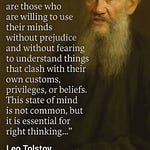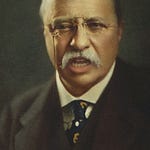Hello, I am John McCain. Let me share with you a principle that has guided me throughout my life: "We must not abandon ourselves and each other, otherwise it would be decadence, and that leads to the failure of world orders." This belief, rooted in the bonds of trust, unity, and mutual responsibility, applies to both individuals and nations. When I said these words, I was reflecting on the challenges facing the Western alliance—challenges that arose not from external forces alone but also from internal divisions and waning commitments. History teaches us that great civilizations fall not because of their enemies but because they lose their moral compass, abandon their values, and forget their responsibilities to one another. This decadence—this erosion of unity and purpose—is what I have always sought to warn against. Let us consider how this principle applied in my time and how it resonates in today’s most pressing global crises. One example that stands out is the Budapest Memorandum of 1994. Ukraine, in a remarkable act of trust and a desire for peace, gave up its nuclear arsenal—the third largest in the world—in exchange for security assurances from the United States, the United Kingdom, and Russia. These assurances were meant to guarantee Ukraine’s sovereignty and territorial integrity. Yet, decades later, we witnessed the failure of those promises. In 2014, Russia violated Ukraine’s sovereignty by annexing Crimea. In 2022, it launched a brutal and unprovoked invasion. The assurances given under the Budapest Memorandum were not backed by enforceable guarantees, leaving Ukraine vulnerable. This betrayal of trust has not only devastated Ukraine but has also shaken the foundations of the world order.
Playback speed
×
Share post
Share post at current time
Share from 0:00
0:00
/
0:00
Transcript
We must not abandon ourselves and each other, otherwise it would be decadence, and that leads to the failure of world orders. John McCain
Dec 11, 2024
Timeless Quotes: A Journey Through Enduring Wisdom (private feed for hase@peachwiz.com)
Timeless Quotes: A Journey Through Enduring Wisdom (private feed for hase@peachwiz.com)
Timeless Quotes: A Journey Through Enduring Wisdom (private feed for hase@peachwiz.com)Listen on
Substack App
Spotify
RSS Feed
Recent Episodes










